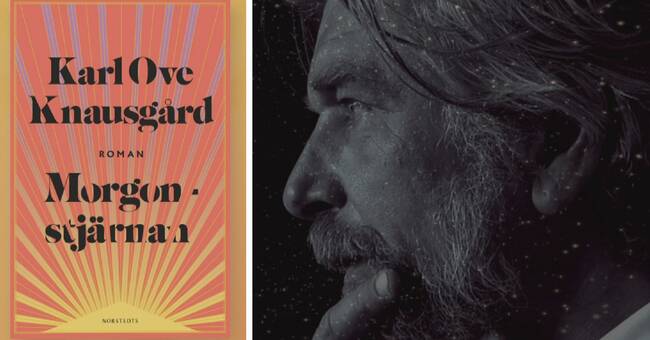What would you do if you learned that life is about to end?
Some would probably indulge in penance, dress in sackcloth and ashes and repent of the undone, others intoxicate themselves into oblivion, or overprotect their children, make contact with the past, run to the woods.
All this makes the nine main characters in Karl Ove Knausgård's new 666-page novel Morgonstjärnan (translated by Staffan Söderblom) a return to storytelling and fiction - 10 years after the sixth part of Min kamp was published.
Fiction instead of autofiction
, a chorus of voices instead of the autobiography of the lonely self.
The Morning Star plays with several genres, scary and entertaining and yet recognizably knotty in tone and focus.
Some hot days in August, the last days of summer vacation, an unknown giant star rises in the sky, it has both biblical and prehistoric dimensions.
The earth trembles under its light: animals behave strangely, humans see in sight, death and life have a fluid boundary.
The star as a warning of doom.
Stephen King's universe is glimpsed in the shadows, both for the creeping horror, but also for the ability to sublimely portray life as the sum of everyday moments.
Tove Jansson's
Comet Comes and Dad and the Sea, which begins with the words: "One indefinite afternoon at the end of August, a father walked around in his garden and felt unnecessary.
In Knausgård's August, it is as if humanity itself in the bright light feels unnecessary.
And where meaning is lacking, and the apocalypse seems to be approaching, people often become dangerous.
The Morning Star is a novel about a risky time.
Although Knausgård is frugal with contemporary props, the practices, rhetoric and habits of Nordic middle-class life are precisely captured.
The story is skilfully timeless, almost nothing of the outside world's major political events reaches in, everything is told closely in the first person.
Everyday affairs, working days and marital conflicts are mixed with fantasies that everything could be completely different.
Or maybe it is already, in a parallel life going on under the radar, behind our consciousness, in the darkness of nature?
Knausgård puts his patented essay exchange at the end of the novel, in a discussion about the place of the divine, about evil and good and the meaning of the real.
That seriousness is contrasted
with the novel characters who order another beer, live as usual - and leave it to the reader to harbor the fear of disaster.
The great loneliness in the novel unfolds in the reader - and creates a paradoxical closeness.
Several of the portraits are hard to forget - and two parts should follow.
I am grateful for that, because many disasters would otherwise be left unfinished - perhaps aesthetically effective, but ethically painful.
For this is a novel about dark guilt, and the greatest neglect is about adults' relationship to children, about death and time.
Our contemporaries exposed, where the morning star - it's too tempting - could of course also be called the corona.
So who are we when we are caught in the light of a new icy star, what do we have to preserve and defend?
Hear Kulturnyheter's literary critic Ulrika Mille's review of Karl Ove Knausgård's new Roma Morgonstjärnan in the clip.

